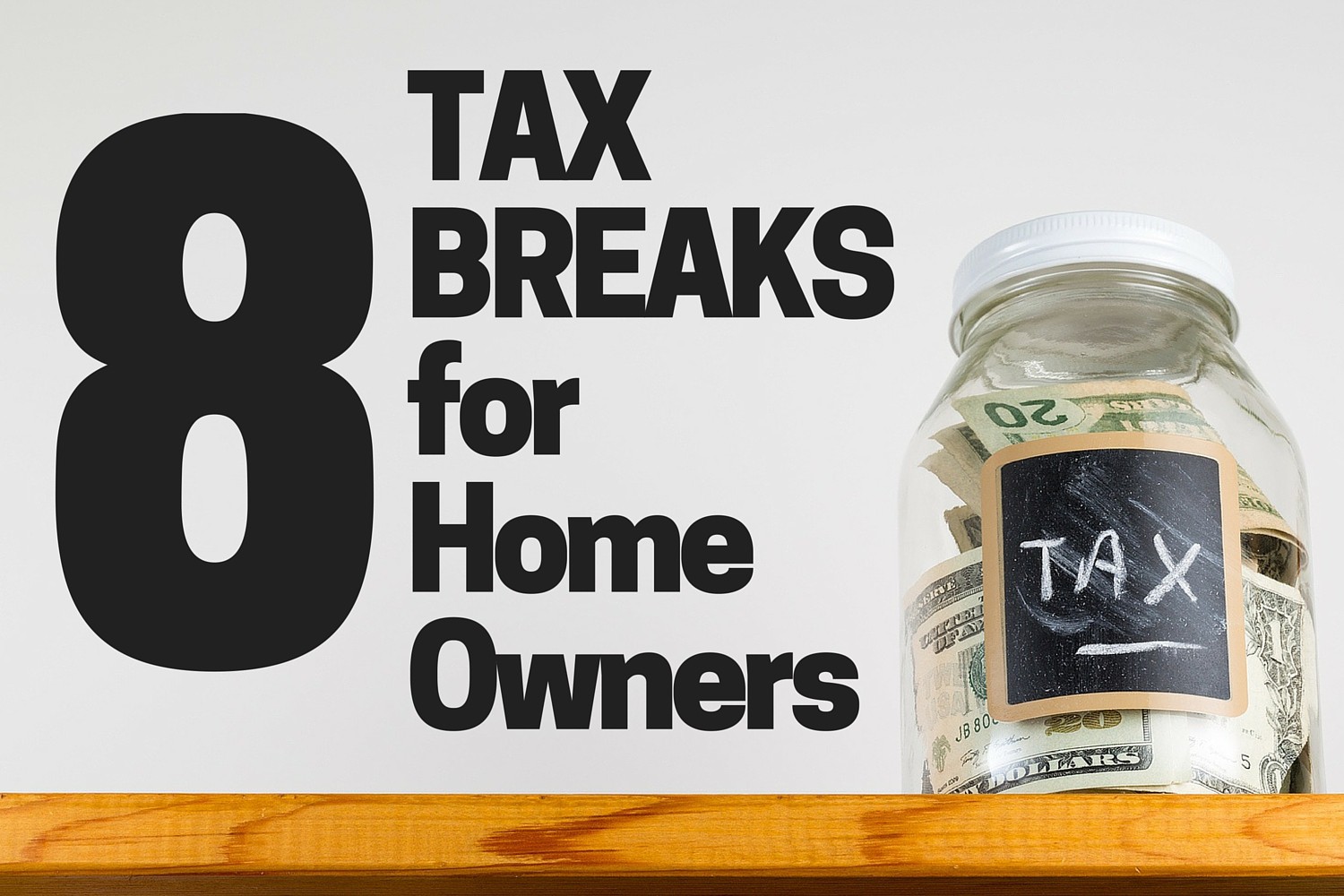8 Tax Breaks For Homeowners
 Owning and maintaining a home can be costly, but fortunately, a number of ownership expenses are tax deductible. Keep reading to see how you can take maximum advantage of the available tax breaks for property owners on your next tax return. (Keep in mind that this info is only valid for the 2015 tax year).
Owning and maintaining a home can be costly, but fortunately, a number of ownership expenses are tax deductible. Keep reading to see how you can take maximum advantage of the available tax breaks for property owners on your next tax return. (Keep in mind that this info is only valid for the 2015 tax year).
Deduct You Mortgage Interest
It’s possible to deduct all of the mortgage interest payments made on your home during the tax year (but not your principal payments) up to 1 million for a couple that files jointly. This deduction is also applicable to both a second mortgage and a home equity line of credit (for loans up to 100k).
If you’ve purchased a second home such as a mobile home or cottage, it is also possible to deduct the mortgage payments for this secondary property as well, but only if it its rented out 10 percent of the time or if you’ve lived in it for at least 14 days during the tax year.
Private Mortgage Insurance And Points
Not only can you deduct your mortgage interest, but it’s additionally possible to deduct the points paid on the mortgage for your primary home in the tax year that these are paid along with the points for any home equity loan that’s been secured. Any points that you pay to refinance your home mortgage will usually have to be amortized over the lifetime of the loan.
It is also possible too deduct the premiums that you pay for your private mortgage insurance or PMI for your mortgage loan if your earnings were below 109K in the tax year and if your policy was bound any time after 2006.
Property Taxes
Surprisingly, you can actually take a tax deduction on your taxes. Property taxes are considered a deductible expense for homeowners. Make sure to keep copies of your property tax bills so that you can show proof of payment.
Home Office Deductions
If you run any type of business out of your home, you could be qualified to take a tax deduction. You have to jump through a few hoops in order to qualify for the related write-offs such as proving that your home office is your sole place of business and proving that the office space is only used for business-related activities. (Publication 587 by the IRS details all of the rules and restrictions pertaining to the home office deduction.)
Your deduction can be calculated in one of two ways. With the simplified option, it is possible to deduct as much as 5 for every square foot of your home office, but not to exceed 300 sq ft.
A more complex way of calculating this deduction and one that is usually more beneficial is to divide your office square footage by the total square footage of your abode to get what is known as the business percentage. Then, you multiply the business percentage by any allowable home expenses such as utilities and mortgage interest in order to get the deduction amount.
Energy Credits
Homeowners who’ve made property improvements for increased energy efficiency can get a credit as high as 10 of their total home improvement costs, up to 500. This credit covers things like new insulation, doors, windows and the purchase and installation of high-efficiency HVAC equipment. It is additionally possible to take a credit of 30 percent of any system for renewable energy that you’ve installed such as solar panels.
In some instances, there are also state tax credits for these things which can be stacked right on top of any federal tax credits that you’re qualified to receive.
Medical Improvements For The Home
If you or any qualified household member has a chronic health condition that requires special property improvements like the addition of a stair lift due to arthritis or the installation of an air filter due to allergies, some of these expenses can be written off as a medical deduction.
It is only possible, however, to deduct the portion of medical expenses that are above 10 percent of your adjusted gross income for that same tax year or just 7.5 percent if you are 65 years of age or above.
Moreover, in many instances, it is only possible to deduct the difference between the costs of these improvements and any resulting gains in home value. Certain improvements like creating wider doorways for wheelchair access do not enhance property values and may be fully deductible if specific income requirements are met.
Property Sales
If your home was sold during the tax year, this transaction could lead to some additional tax savings. Real estate agent fees, title insurance and advertising are all deductible. Home improvements that were made to sell the home can be deducted as well, but this is only the case if the sale has resulted in a taxable capital gain.
Property Damages
If your home was damaged by vandalism, theft, fire, weather or any other recognized disaster resulting in a casualty loss, a portion of the related expenses could be deductible. When this type of loss exceeds 10 percent of your yearly income and is not the result of a covered event, the loss can be deducted. It will be necessary, however, to carefully document the value of this loss.